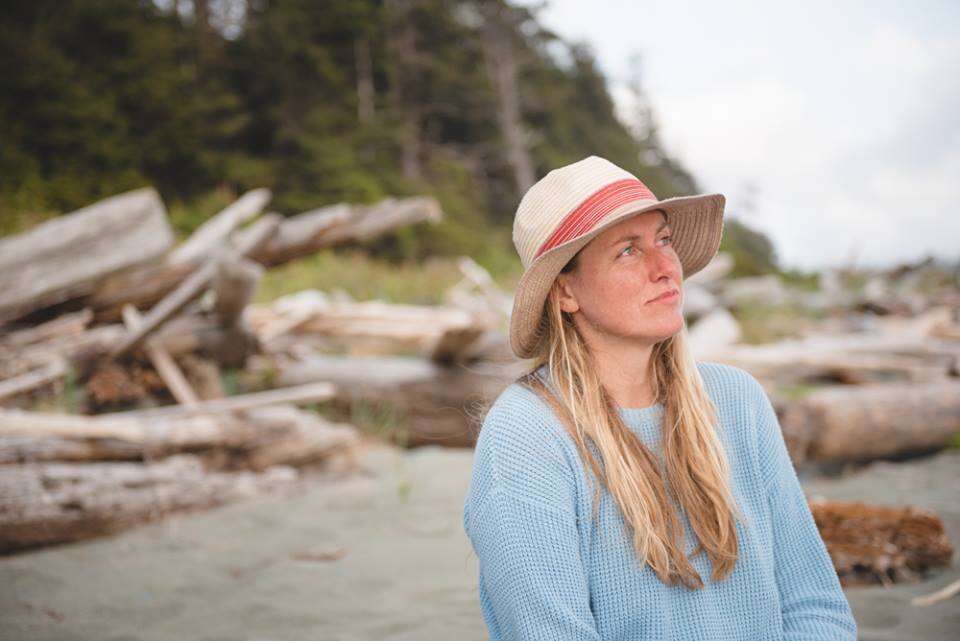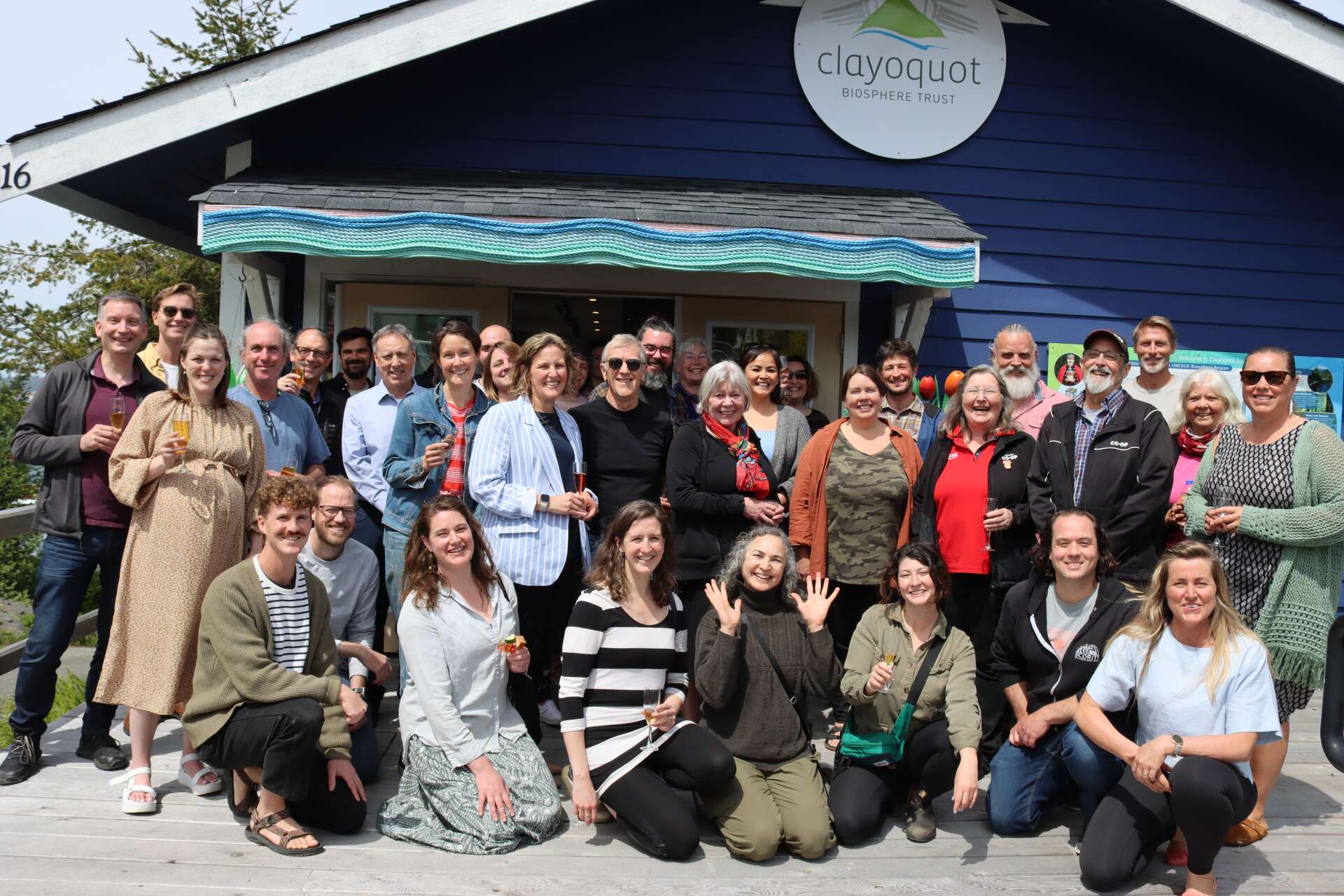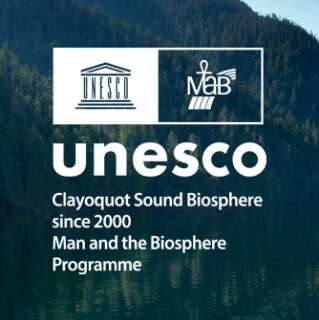Michelle Hall talks about her community leadership journey

Michelle Hall is a settler living in the unceded territory of the Tla-o-qhi-aht Frist Nations, otherwise known as Tofino. She founded her business Cedarwood Cove, an adventure and wellness retreat, in 2013 with her husband Alan. Alongside running her business, Michelle is an environmental leader for a non-profit grassroots organization called Surfrider Foundation and actively volunteers in her community, as well as being a fulltime student with Royal Roads University. Photo by Marnie Recker Photography.
–
What does it mean to you that LVI a place-based, locally offered learning opportunity?
It was a privilege to be able to learn in Nuu-chah-nulth territory and to be fully submerged in culture and traditional teachings from so many experts living here within the shared communities. This is a course that provides a chance to further education and skills in leadership, and is also an opportunity to learn about the current and very real strengths and challenges of communities we live in, and understand the deep-rooted trauma created from residential schools. When we can understand more about the place we are living in, and respect cultural history, we find ways to connect and understand other people we live alongside, and embrace opportunities to learn from each other and move forward together in ways that can lift each other up. This region is rich with ecological and cultural teachings, with many diverse experts to learn from!
What were the biggest personal developments LVI facilitated for you on your leadership journey?
“Lead self, Lead others, Lead community” was the most consistent message that remains with me. It teaches me that in order to maintain sustainability and success in my work as a leader, it is me who is in charge of ensuring my own personal balance, my own joy, my own development journey and my own workload capacity. I am reminded that a good leader leads by example and supports other leaders, adaptively co-managing teams and receiving new ways of doing something with an open mind. The biggest challenge I overcame was accepting a traumatic mistake within the duration of the course, and finding forgiveness for myself, and for others whilst moving forward with clear communication and a commitment to understanding. By showing up for the uncomfortable moments, I proved to myself that I was becoming a better leader. “If you think you are a good leader, try telling someone’s dog what to do!”
Can you speak about the relationships formed through LVI?
I would never have experienced the course the way I was able to without the support, knowledge and trust shared so generously with me from my diad Anna Atleo. Having an assigned partner during LVI for me was critical to understanding the strengths and challenges of other leaders in this community. Furthermore, coming from different cultures and somehow holding the exact same values as each other was extraordinarily unique and wonderful. When we can listen to other peoples stories and hold space, we can embrace their victories and cradle the discomfort. Through this practice we open possibilities that can form beautiful and trusting relationships to work together. I was fortunate to have a fantastic team to work on a team project with and this was another example of learning from a place of diversity, traditional knowledge and inclusion, which in turn developed adaptive skills so we could keep project tasks sustainable and suited to everyone’s capacity. I’m so grateful to still hold friendships with all of my peers!
How has LVI impacted your life and work within and beyond our communities since graduation?
Through the creation of my “Personal Leadership Plan” I was able to identify the many seeds of opportunities my personal journey could take, and thus I was inspired to return to University to complete a masters in Environmental Practice. I was able to use the credits gained on LVI as part of my application which was useful since I am a foreign student with over 20 years of absence from academic education. I understood that I didn’t need to know ‘everything’ to be a good leader, but I wanted to know more about the things that I found interesting and that would open up more opportunities to move forward in my environmental career. I invested more time to creating more leaders in my team, encouraging new leaders to step into my role as chairperson for the Pacific Rim chapter, and bringing more development and training to support new ideas. After I opened this space to the universe, I was then elected to become Vice President of Surfrider Canada and awarded the Chapter Leadership award from the Surfrider Foundation head office in the states. Instead of trying to grasp onto leadership, I have really enjoyed opening more opportunities of leadership to the whole Surfrider team, which has, in turn, meant incredible progress and success for our mission and has created the space for myself to find a balance for all of the seeds of opportunities I have created.

